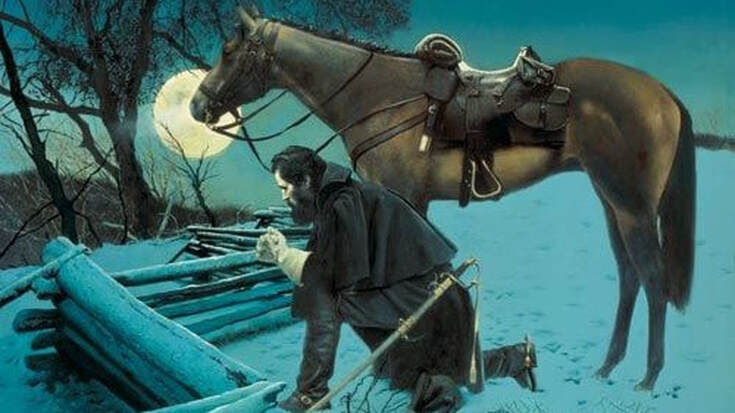|
“What has given the South her identity are those beliefs and qualities which she has absorbed from the Scriptures and from her own history of defeat and violation: a distrust of the abstract, a sense of human dependence on the grace of God, and a knowledge that evil is not simply a problem to be solved, but a mystery to be endured,” remarked author Flannery O’Connor in “The Catholic Novelist in the Protestant South.” “Saint Gregory wrote that every time the sacred text describes a fact, it reveals a mystery. And this is what the fiction writer, on his lower level, attempts to do also.” I’m no fiction writer nor am I Catholic, but I am a journalist and an Orthodox Christian. And I am Southern born and bred just like Ms. O’Connor, so I can relate to O’Connor’s (little-o) orthodox sentiments, on both a cultural and a spiritual level. She continued, “Whenever I’m asked why Southern writers particularly have a penchant for writing about freaks, I say it is because we are still able to recognize one. To be able to recognize a freak, you have to have some conception of the whole man, and in the South the general conception of man is still, in the main, theological. That is a large statement, and it is dangerous to make it, for almost anything you say about Southern belief can be denied in the next breath with equal propriety.” “But approaching the subject from the standpoint of the writer, I think it is safe to say that while the South is hardly Christ-centered, it is most certainly Christ-haunted. The Southerner, who isn’t convinced of it, is very much afraid that he may have been formed in the image and likeness of God. Ghosts can be very fierce and instructive. They cast strange shadows, particularly in our literature. In any case, it is when the freak can be sensed as a figure for our essential displacement that he attains some depth in literature.” Like the fine modern writer Casey Chalk points out, “O’Connor’s literary objective was not to tell the world about all the good, honest people in the South. Her aim was thoroughly practical, while metaphysical: to persuade her readers of their sinfulness and desperate need for divine grace… Her stories are consequently filled with unadmirable characters meant to stoke our consciences into repentance.” While “O’Connor’s literature is a labor of love for her native South (and the world), preaching the reality of grace in a land marred by sin, pride, violence,” Chalk notes, today’s Dixie is a place “desperate for something solid and grounded, especially as we rip up and tear down monuments to our once beloved heroes. … Without saints both secular and religious, our catechesis in right living is terribly impoverished.” We Southerners are so blessed that many of our heroes — like the venerable Lee and Jackson whose birthdays we celebrate this month — weren’t just remarkable generals, fearless soldiers, and humble leaders, but they were also pious Christians. In fact, I think it is the unwavering faith of much of Dixie’s patrimony that is really the main driver of the Southern cultural genocide. All other cultural-Marxist justifications are ancillary. “Anything that comes out of the South is going to be called grotesque by the Northern reader, unless it is grotesque, in which case it is going to be called realistic,” O’Connor confirmed. And to the rest of dead American society, simply put: the South’s most grotesque feature is our faith. Thus, it is we devout Dixians who have become today’s freaks precisely because we view man through the theological lens. And there is no love or even empathy for us, for we are traditionalists in a postmodern world, a culture-loving collective stuck in a presentist bad dream, a Jesus people navigating the treacherous seas of a post-Christian dystopia. A thorn in the side of “progress.” Good. But due to the reconstructions imposed upon of our forebearers and those we Southerners and our progeny still face at present, we have become a fragmented and atomized people. It is what writer Walt Garlington calls the “schism in the Southern soul.” Therefore, I offer up a prayer for Dixie’s Land — a “good thing to be stuck with,” as O’Connor would say — so that all the “freaks” will be made whole through loving God. This piece was originally published on DissidentMama.net.
1 Comment
|
AuthorTruth warrior, Jesus follower, wife, and boymom. Apologetics practitioner for Orthodox Christianity, the Southern tradition, homeschooling, and freedom. Recovering feminist-socialist-atheist, graduate of the University of Wisconsin-Madison, and retired mainstream journalist turned domesticated belle and rabble-rousing rhetorician. A mama who’s adept at triggering leftits, so she’s going to bang as loudly as she can. Archives
July 2022
|

